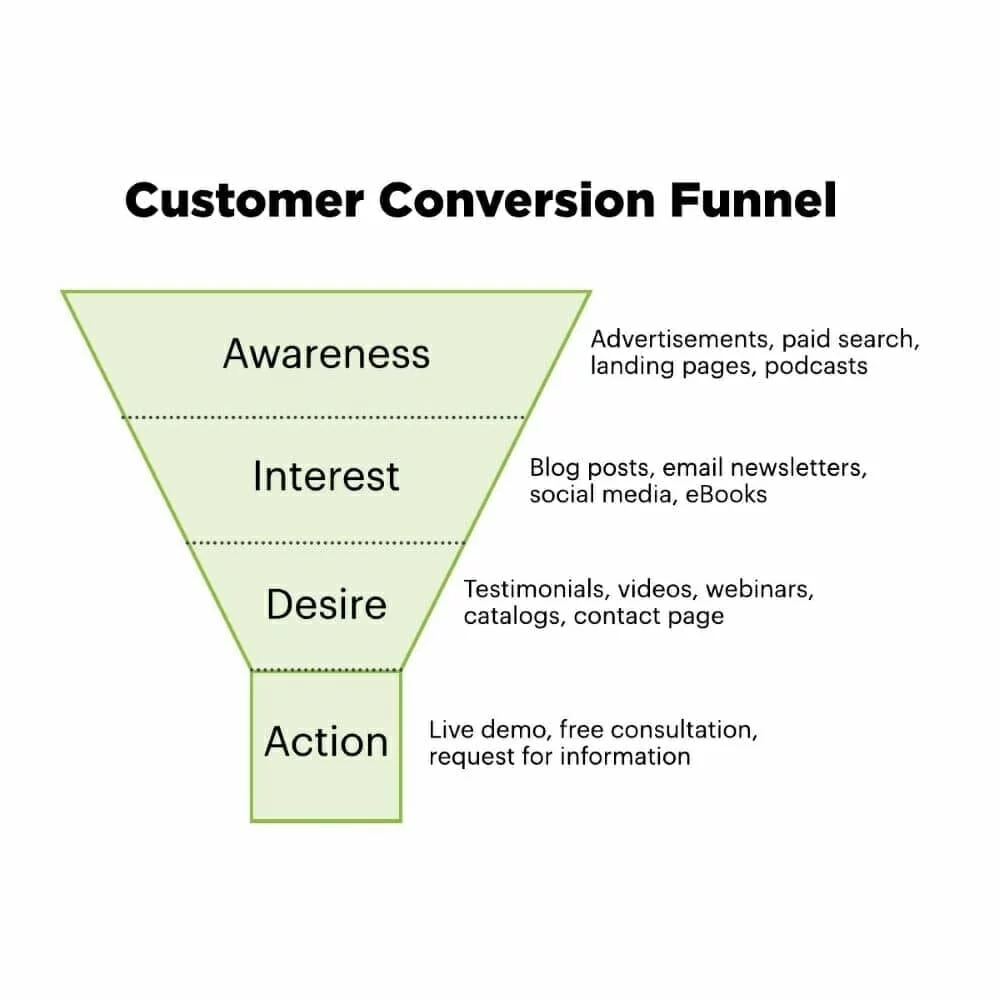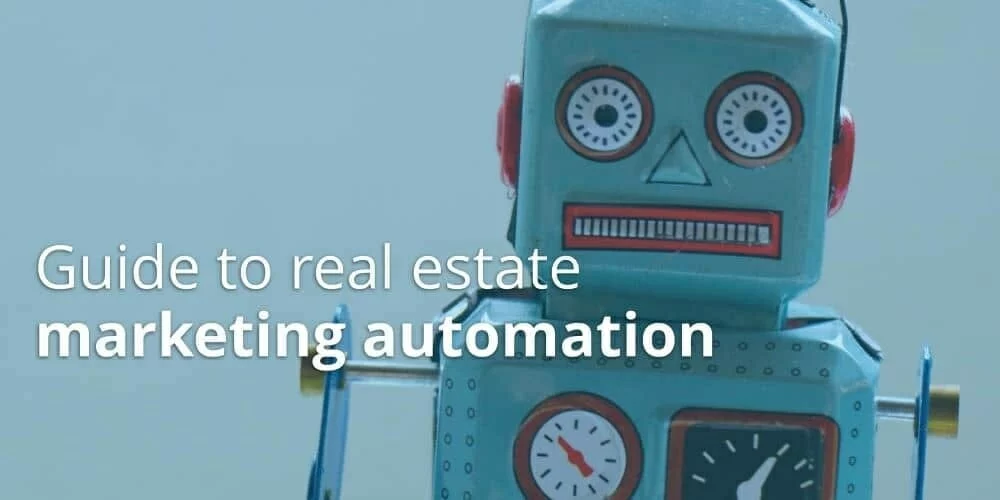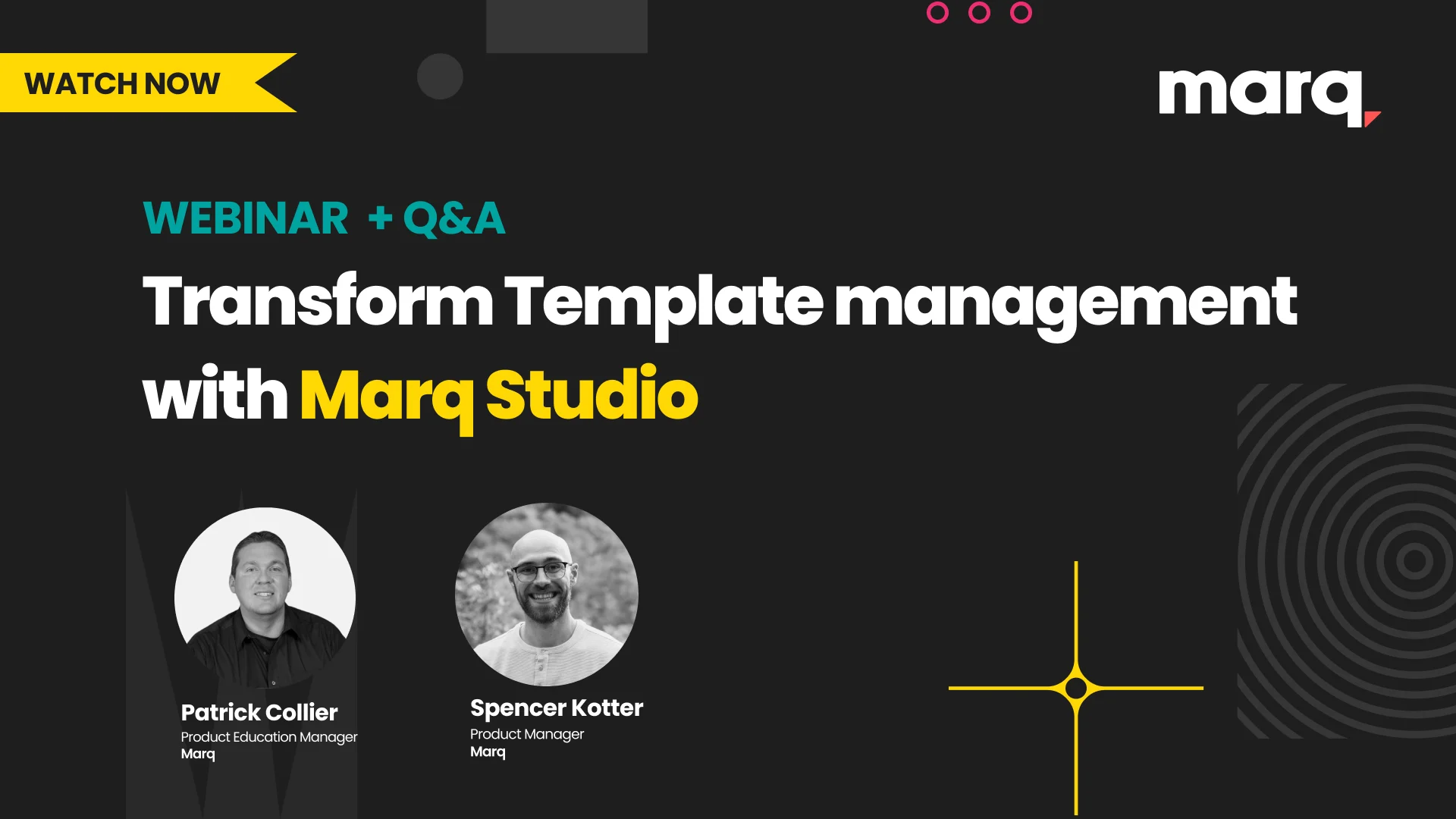If your real estate business is growing, it’s only a matter of time before you’ll need to reevaluate your marketing strategy. “Growing pains” are definitely real, and your agents will feel the squeeze as you try to scale your marketing efforts for larger audiences.
Related: Should you hire a real estate marketing agency?
When you find yourself at this point, it’s time to automate. Real estate marketing automation software will save agents time and help you reach and nurture leads more effectively. It handles many complex tasks that are either too difficult or time-consuming to do on your own. But like any software, it comes with serious considerations, such as cost and learning curve.
In this post, let’s go over what marketing automation is, how it can help your real estate business, and how to choose the right software for your brand.
What is marketing automation?
Marketing automation is the process of automating certain repetitive marketing tasks. It’s designed to support multiple channels, so your marketing efforts (and your brand) stay consistent across the board. Most marketing automation platforms support websites, emails, and social media.
Marketing automation use cases
Let’s go over a few examples. Here are some of the ways agents can use marketing automation software to work more efficiently.
Reduce cart abandonment. Imagine you sell products on your website. It could be branded merchandise, online courses, or real estate services.
Ideally, when someone adds an item to their cart, they will complete the transaction immediately—but, that’s not always the case. They may have been looking for more information, like shipping prices, before making their decision. Or, maybe they realized they can’t afford to pay today.
Either way, the result is an abandoned cart and lost sales.
Marketing automation software can help you capture this information and add this lead to your database. Then, you can target this lead with a follow-up email that encourages them to return to their cart and finish the sale. You could provide them with a discount, free shipping, or some other enticing offer. This email could be the key to persuading the buyer to complete the sale.
Nurture your blog subscribers. If you’re investing time and resources into content marketing, your goal is to engage an audience who may not be ready to buy today, but they will be in the future. Maintaining an active blog is a popular way to build an engaged audience of subscribers.
So, how do you move these people toward sales?
Real estate marketing automation can help agents set up email campaigns to nurture those blog subscribers. You can even divide your audience into segments and send them relevant, customized content—like local listings. Regular contact will keep your brand top-of-mind, so they think of you first when they need an agent.
Identify leads who are ready to buy. Sometimes, it’s hard to track all the leads in your system and prioritize the ones most ready to buy. You don’t want to miss a sales opportunity while it’s hot, so you decide to prioritize leads who’ve completed certain actions on your website.
But… which activities should you track, and how?
A good marketing automation program will provide reliable data on the actions that demonstrate high interest:
- Landing page visits (such as visiting your pricing page more than once)
- Email opens (like opening a demo email, but not clicking through)
- Lead scoring (assigning a number to a lead based on how many actions they’ve completed)
Based on this information, you can be confident that you’re reaching out to a real estate lead at the right time.
Benefits of marketing automation
Now that you understand what real estate marketing automation is and how it can be used, let’s review the benefits.
Marketing automation software saves time. Creating customized campaigns won’t take as long as it used to. Because your agents don’t have to spend time performing repetitive marketing tasks, they have more time to spend face-to-face with clients—closing more sales.
It makes your advertising more effective. Because marketing automation software uses data to make decisions, you can be more confident that your message is reaching the right people at the right time. From email automation to SMS messaging and mobile push notifications, this software streamlines a variety of marketing techniques, so agents can focus on getting the best results from each.
It makes marketing management easier. Before automation software, agents had to spend hours every week performing repetitive tasks and sifting through the data—introducing many chances for error. Now, a program can manage these things for you, and all you have to do is maintain and optimize your campaigns.
Lead gen best practices
If you’re interested in marketing automation for real estate, you’re probably already generating a fair number of leads. If not, you might want to get your lead generation efforts up and running first, so you can get the most out of your real estate automation software.
In either case, it’s never a bad idea to review lead gen best practices. What makes a good lead generating strategy?
Move leads down the funnel. Remember the classic customer conversion funnel? It describes the journey a buyer makes through the stages of awareness, interest, desire and action. For each stage in this funnel, you should have landing pages and content to match. For example:

When you have all these pieces in place—and you use clear calls-to-action to connect them—buyers will move seamlessly through the stages with fewer obstacles and objections. Marketing automation software can help you manage and deliver that content, so your leads don’t get lost or go cold.
Build your own email list. If you’re just starting out, it’s tempting to purchase email lists. But when you buy a list of addresses, you’re getting the same tired list that many other agents have used before you. Bottom line—it will never be as effective as the list you build yourself.
Make it easy for people to subscribe to your blog and email newsletters. Put sign-up links on your website, blog and social media channels. Collect email addresses from clients and prospects you interact with, then add them to your email list. Offer incentives to sign up for your email (e.g. coupons, sweepstakes, listings info), and remind people about it both online and offline.
Because this list is targeted and unique to you, you’ll enjoy better open rates, click-through rates, and conversion rates.
Maintain brand consistency. It’s often said that a prospect requires 6 to 8 “touches” from your brand before they become a lead. These touches can come in the form of advertisements, listings, webpages, emails and social media posts—all different channels.
If your brand identity & messaging aren’t consistent, you risk losing and confusing your audience. That’s why brand management is so important. Make sure agents are all using the same brand assets (colors, logos, fonts) and messaging (voice, tone, offers). The consistency will help buyers recognize, remember and trust your brand.
Related: The complete real estate marketing guide
Which software do you need?
To figure out which real estate marketing automation software to use, you have to ask yourself a few questions. The answers will provide a rubric for evaluating all the options out there.
Am I using inbound or outbound marketing? Generally speaking, there are two types of marketing: inbound and outbound.
You can think of outbound as “push marketing,” where you push a message out into the world (e.g. advertisements) in hopes of attracting the right people to your brand. Outbound marketing includes:
- Print & broadcast advertisements
- Direct mail
- Paid social ads
- Paid search & display ads
Conversely, you can think of inbound as “pull marketing,” where you publish and distribute messages (e.g. web content) that interested buyers search for online. Inbound marketing includes:
- Blogging
- Organic social media
- Organic search
- Emails to your list
Which strategy do you use most often? In reality, most real estate brands will use a mixture of both. Outbound marketing is good for building initial brand awareness. Inbound marketing is good for driving qualified leads. Both can contribute to a healthy sales pipeline.
Determining what type of marketing you use the most can help you prioritize which automation software to consider. Some specialize in one or the other, and some cover both.
Which channels do I use (or want to use)? This question dives a little deeper than the last. Rather than thinking in broad categories, get specific about the marketing channels you want to automate.
Different software will specialize in different channels. Make a list of the channels that are “must-haves” and “nice-to-haves.” Your lists could include:
- Website actions
- Social media
- Content publishing
- SMS messaging
- Mobile push notifications
As you can see, the potential of real estate marketing automation goes far beyond email. But, not every agent will need all the bells and whistles. As management, it’s up to you to decide which features are most relevant for your agents. Then you can filter out the software that doesn’t meet your needs—or, perhaps, far exceeds them.
What tools do I need to integrate with? Chances are, you’re already using a slew of programs to manage your business. Marketing automation could replace some of those, but of course, not all. It’s important that your marketing automation software plays nicely with the other tools you’re using.
Linking your marketing automation software to other tools will increase its usefulness. They provide useful data your software can use to make decisions.
Examples of tools you could link to your marketing automation software:
- Salesforce (CRM)
- Microsoft Dynamic (CRM)
- Google Analytics (data)
- Kissmetrics (data)
- Facebook (social)
- LinkedIn (social)
- Eventbrite (events)
There are thousands of examples (just glance at Hubspot’s integrations page to get an idea!). Take a close look at which tools you could replace with marketing automation and which tools you’d need to integrate.
Related: Real estate marketing software that outperforms competitors like Imprev
Important evaluation criteria
It’s not just the software that you’re evaluating—there are other reasons to choose one program over another. Here are a couple of additional considerations.
Implementation and ramp-up. Setting up a new software is not an easy task, especially one as complex as marketing automation software. (Switching from one software to another can be even harder, as we learned here at Lucidpress when we switched from Hubspot to Marketo.)
Make sure you have a plan and a timeline for implementing the new software: importing data, connecting tools, adjusting code, and setting up initial campaigns.
Also think about the ramp-up. Which campaigns are absolutely necessary to get started? Which ones can you hold off or pause while you get up to speed?
There’s also adoption: Who needs to learn and use this software regularly? Make sure you have any training resources you need, and that all agents are on the same page.
Service and support. If something breaks or doesn’t work, who do you call? If you’re comfortable troubleshooting yourself—or if you have an IT person—you might not need additional support from your marketing automation provider.
But if you’re not, it’s worth asking about services and support. What’s included in your subscription? If your agents need more help or training, is there an extra cost associated with that? How responsive is their team? You can include all of these in your evaluation.
Marketing automation comparison chart
Now that you know what marketing automation is and how it could help grow your real estate business, it’s time to start evaluating providers. We’ve chosen a handful of software programs that are popular with real estate brands and compared them below.

View and download this table here.
To find out more about the 7 programs in our chart, visit their websites:
You can use this as inspiration to create your own comparison chart in Lucidpress, Google Docs or Excel. This will help you keep track of the marketing automation software you research, so it’s easier to make your final decision.



